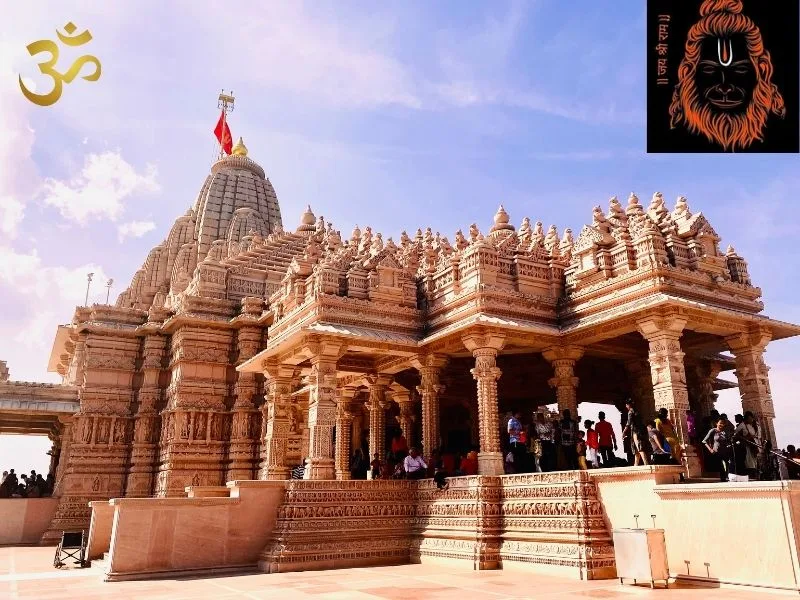Hello friends, did you know that Hinduism is the oldest religion in the world? Despite many people being Hindus, there is still a lot of mystery surrounding the origins, scriptures, sects, and philosophies of Hinduism. This article aims to uncover these aspects, providing a comprehensive understanding of Hinduism, its beliefs, and practices.
The Origin of Hinduism
Hinduism is not just a religion but a way of life, deeply rooted in the ancient history of India. The term “Hindu” is derived from the Indus Valley Civilization, named after the Indus River. The original name of this religion is Sanatan Dharma, meaning the eternal way.
According to religious beliefs, Hinduism originated before human existence. Scholars, however, believe that it was established by Swayambhuva Manu. Historical evidence suggests that Hinduism predates the Indus Valley Civilization, with origins going back approximately 15,000 years.
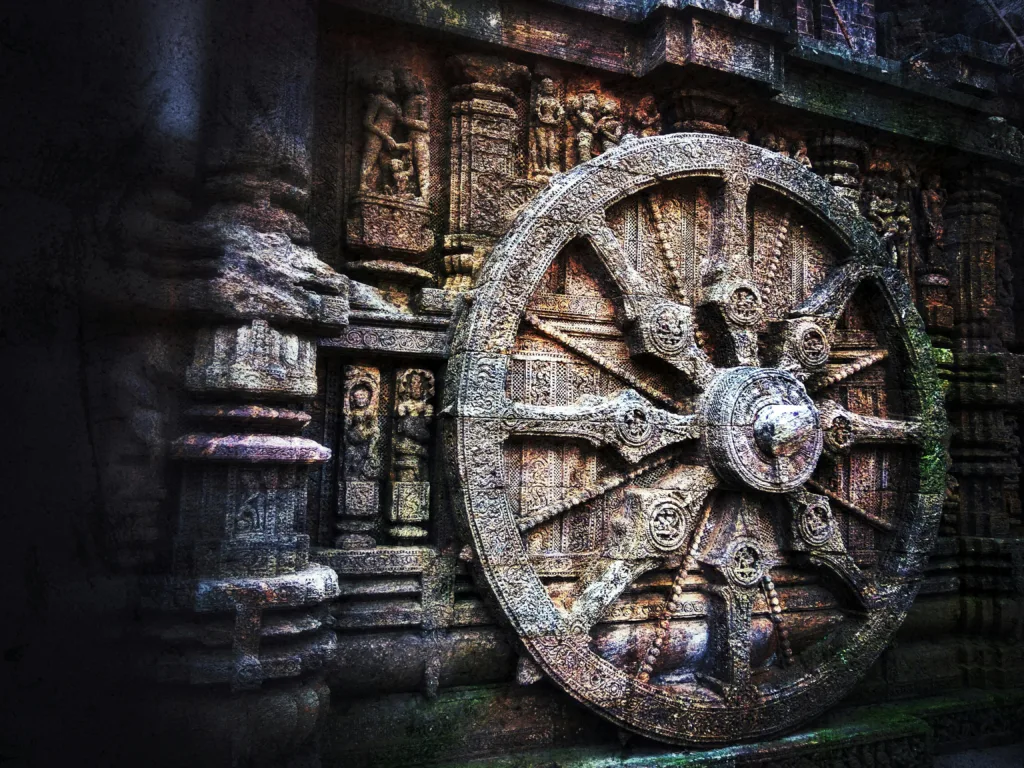
Founders and Establishment
Unlike many other religions, Hinduism was not founded by a single person. Instead, it evolved over thousands of years. The Rigveda, one of the oldest sacred texts, was composed by sages who memorized and passed down their knowledge through generations. These sages, including names like Brahma, Vishnu, Mahesh, Agni, Aditya, Vayu, and Angira, played a crucial role in establishing the foundations of Hinduism.
Shri Krishna, in the Geeta, mentioned that whenever there is a decline of righteousness and an increase in unrighteousness, he would incarnate to re-establish Dharma. This belief underscores the timeless and self-renewing nature of Hinduism.
Sacred Texts of Hinduism
The sacred texts of Hinduism are divided into two categories: Shruti and Smriti. Shruti, meaning “heard,” includes the Vedas, which are considered the primary scriptures. There are four Vedas: Rigveda, Yajurveda, Samaveda, and Atharvaveda. The Upanishads and the Geeta are considered the essence of the Vedas.
Smriti, meaning “remembered,” includes texts like the Puranas, Mahabharata, Ramayana, and other Smriti texts. These texts play a significant role in shaping the beliefs and practices of Hinduism.
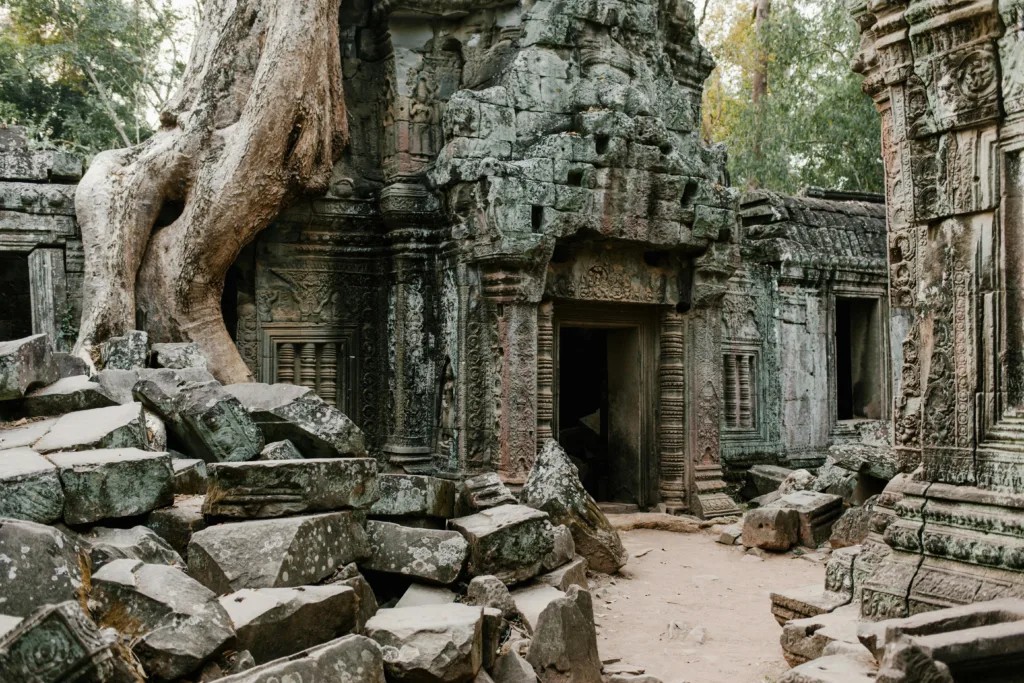
The Vedas and Upavedas
The Vedas are the foundation of Hindu religious knowledge. Each Veda has associated Upavedas (sub-Vedas) that extend their teachings to various fields of knowledge. For instance:
- Rigveda is associated with Ayurveda (the science of life and medicine).
- Yajurveda is linked to Dhanurveda (the science of archery and warfare).
- Samaveda is connected with Gandharvaveda (the science of music and arts).
- Atharvaveda includes knowledge of everyday life and rituals.
Philosophy in Hinduism
Hindu philosophy is deeply intertwined with the concepts of salvation (moksha), Brahman (the ultimate reality), and the soul’s journey through the cycle of birth and death. The ultimate goal of the soul is to attain moksha, which can be achieved through devotion (bhakti), knowledge (jnana), and disciplined practice (yoga).
Hinduism teaches about the soul (atman), Brahman, rebirth, and karma. The Upanishads and the Geeta elaborate on these concepts, providing profound philosophical insights. The six main philosophies of Hinduism are:
- Nyaya: Focuses on logic and epistemology.
- Vaisheshika: Deals with metaphysics and the nature of reality.
- Samkhya: Explores the dualism of spirit and matter.
- Yoga: Emphasizes meditation and disciplined practices.
- Mimamsa: Concentrates on rituals and the interpretation of Vedic texts.
- Vedanta: Discusses the nature of Brahman and the self.
Monotheism and Polytheism in Hinduism
Hinduism is unique in that it encompasses both monotheism and polytheism. While it recognizes one supreme power, Brahma, it also acknowledges numerous gods and goddesses as manifestations of this singular reality. This inclusive approach allows Hindus to worship different deities according to their personal inclinations and needs.
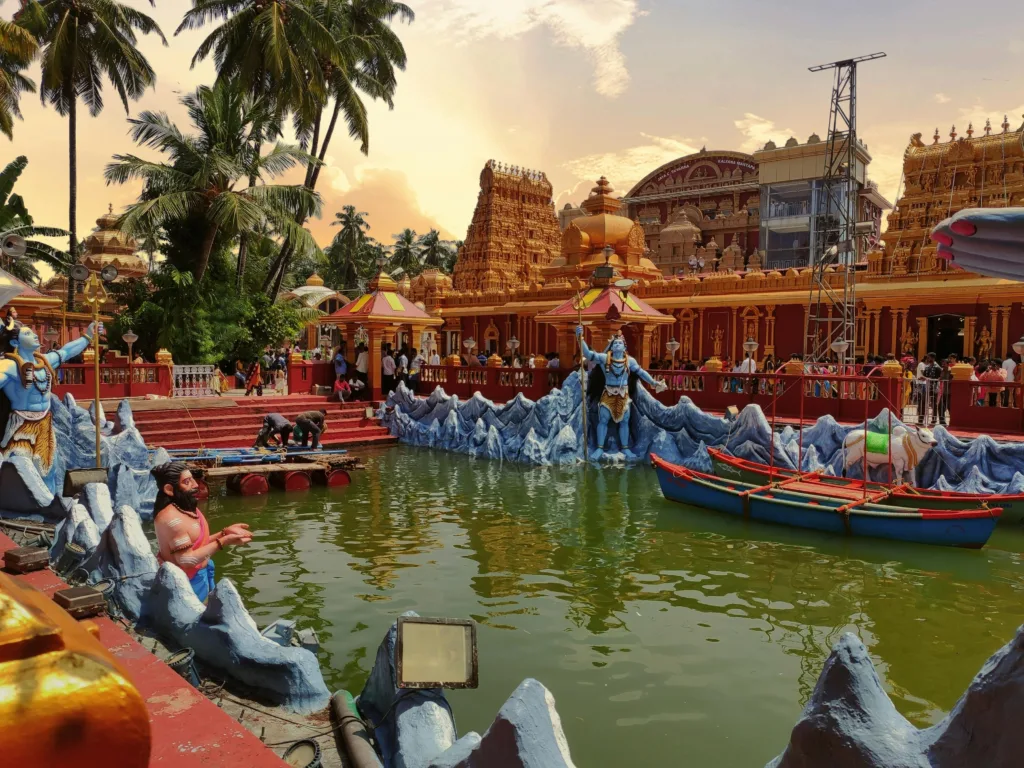
Principles of Hinduism
The principles of Hinduism revolve around Dharma (duty), Artha (prosperity), Kama (desire), and Moksha (liberation). These principles guide the ethical and moral framework of Hindu life. The ten main principles include:
- Karma: The law of cause and effect, emphasizing righteous actions.
- Dharma: The moral law governing individual conduct.
- Moksha: Liberation from the cycle of birth and death.
- Artha: The pursuit of wealth and prosperity.
- Kama: The pursuit of pleasure and desires in a balanced manner.
- Spiritualism: The belief in the immortality of the soul.
- Brahman: The ultimate reality and source of all existence.
- Ashramas: The four stages of life (Brahmacharya, Grihastha, Vanaprastha, Sannyasa).
- Path of Salvation: Various paths to achieve liberation.
- Incarnation: The belief in divine incarnations to restore Dharma.
Know more about :The Seven Immortals || विश्व के सात चिरंजीवी कौन-कौन हैं ?
Sects in Hinduism
Hinduism is diverse, with various sects that have unique traditions and practices. Major sects include:
- Vedic Sect: Includes traditions like Arya Samaj and Brahmo Samaj.
- Shaiva Sect: Worships Shiva and includes sub-sects like Veerashaiva and Nath.
- Shakta Sect: Worships the goddess Shakti in various forms.
- Vaishnav Sect: Worships Vishnu and his avatars, including sub-sects like ISKCON and Ramanuja Sampradaya.
Sandhya Vandan and Evening Worship
In Hinduism, Sandhya Vandan is a ritual performed during the transitional periods of the day, particularly at sunrise and sunset. This practice involves prayer, meditation, and recitation of mantras. Evening worship, or Sandhya, is a way of honoring the divine and seeking blessings.

Hindu Pilgrimages and Temples
Hinduism places great importance on pilgrimages and temple visits. Some of the most revered pilgrimage sites include Chardham, the twelve Jyotirlingas, Amarnath, Kailash Mansarovar, and the Saptapuri. These sites are considered highly sacred and visiting them is believed to purify the soul.
Hindu Festivals
Hindu festivals are rich in tradition and celebrated with great enthusiasm. Major festivals include:
- Makar Sankranti: Celebrated in January, marking the transition of the sun into Capricorn.
- Ram Navami: Celebrates the birth of Lord Rama.
- Krishna Janmashtami: Celebrates the birth of Lord Krishna.
- Hanuman Jayanti: Celebrates the birth of Lord Hanuman.
- Navratri: A nine-day festival dedicated to the worship of the goddess Durga.
- Diwali: The festival of lights, symbolizing the victory of light over darkness.
- Holi: The festival of colors, celebrating the arrival of spring.
- Vasant Panchami: Celebrates the arrival of spring and is dedicated to Saraswati, the goddess of knowledge.
- Pongal: A harvest festival celebrated in South India.
- Bihu: A harvest festival celebrated in Assam.
- Lohri: A festival celebrated in Punjab to mark the end of winter.
- Ganesh Chaturthi: Celebrates the birth of Lord Ganesha.
- Chhath: Dedicated to the worship of the Sun god.
- Rakshabandhan: Celebrates the bond between brothers and sisters.
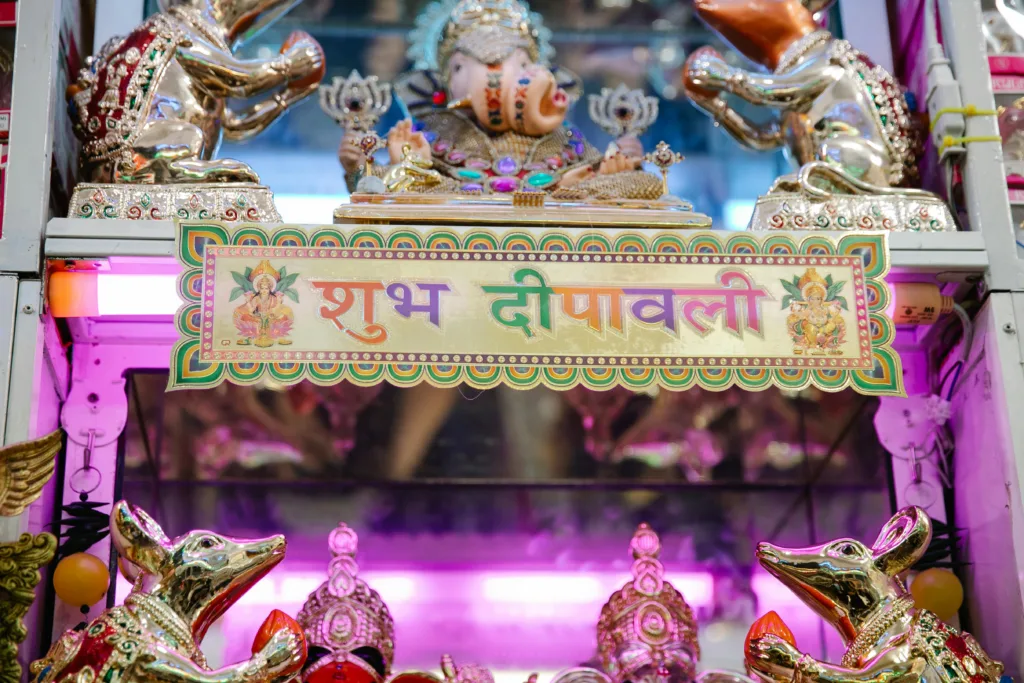
Fasting and Observances
Fasting is a common practice in Hinduism, often observed during festivals and auspicious days. The month of Shravan is particularly significant for fasting. Other important fasting days include Ekadashi, Pradosh, and Purnima.
Charity in Hinduism
Charity, or Dana, is a fundamental aspect of Hinduism. It includes various forms of giving, such as food donation, clothing donation, and education donation. The Puranas extol the virtues of charity, emphasizing that it purifies the giver and benefits the receiver.
Yajnas and Rituals
Yajnas are sacrificial rituals performed to honor the gods and seek their blessings. There are five types of Yajnas:
- Brahmayajna: Offering to Brahman, the ultimate reality.
- Devyajna: Offering to the gods.
- Pitruyajna: Offering to the ancestors.
- Bhutayajna: Offering to all living beings.
- Nriyajna: Offering to humanity.
Performing these Yajnas is considered essential for spiritual growth and maintaining harmony in the world.
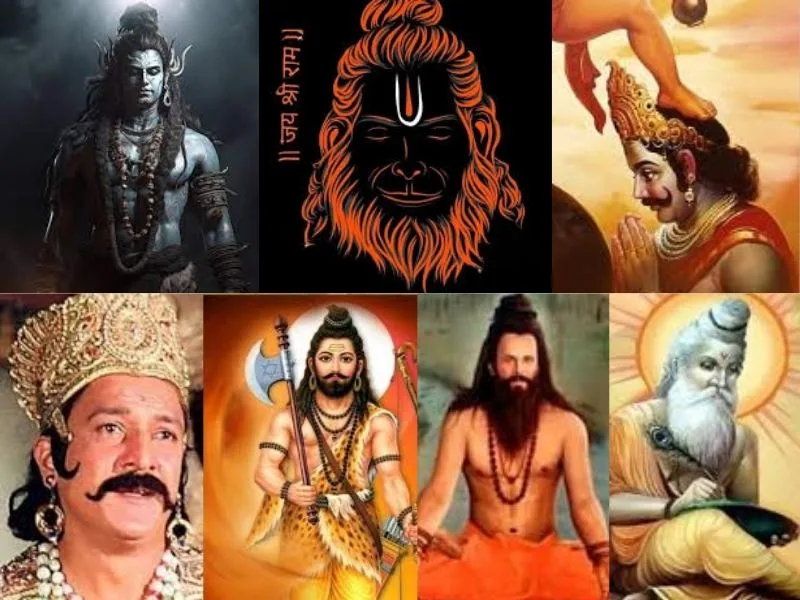
The Sixteen Sanskars
The sixteen Sanskars are rites of passage that mark significant milestones in a Hindu’s life. These include:
- Garbhadhan: Conception rites.
- Pumsavana: Rites during pregnancy.
- Simantonnayana: Rites for the protection of the fetus.
- Jatakarma: Birth rites.
- Namakarana: Naming ceremony.
- Nishkramana: First outing of the child.
- Annaprashana: First feeding of solid food.
- Chudakarma: First haircut.
- Karnavedha: Ear-piercing ceremony.
- Upanayana: Sacred thread ceremony.
- Keshanta: Rites marking the first shave.
- Samavartana: Graduation ceremony.
- Vivaha: Marriage ceremony.
- Vanaprastha: Retirement to the forest.
- Sannyasa: Renunciation.
- Antyeshti: Funeral rites.
These Sanskars guide individuals from birth to death, ensuring a life aligned with Dharma.
Daily Practices and Worship
Daily practices in Hinduism include Sandhya Vandan, worship, meditation, and the recitation of mantras. Aarti, Bhajan, and Kirtan are common forms of worship that involve singing hymns and offering light to the deities.
Hinduism Around the World
Hinduism is the third-largest religion globally, with a significant following in India and Nepal. It also has a presence in other parts of Asia, including Bali, Indonesia, and Sri Lanka. The diaspora has spread Hinduism to various parts of the world, including North America, Europe, and Australia.
दुनिया में हिंदू धर्म का प्रचलन | Hindus in World
Conclusion
Hinduism is a rich and diverse religion with a deep history and profound philosophy. It teaches the importance of living a life of righteousness, pursuing knowledge, and seeking liberation. Whether through daily practices, festivals, or pilgrimages, Hindus strive to maintain a connection with the divine and uphold the principles of Dharma.
Thank you for reading this article. If you enjoyed it, please like and subscribe to our channel for more insightful content. Press the bell icon to receive notifications of new videos. Hail Lord Krishna!
Join करें हमारा व्हात्सप्प ग्रुप (WhatsApp Group)
हमारे Telegram ग्रुप से जुडने के लिए यहाँ क्लिक करें।

